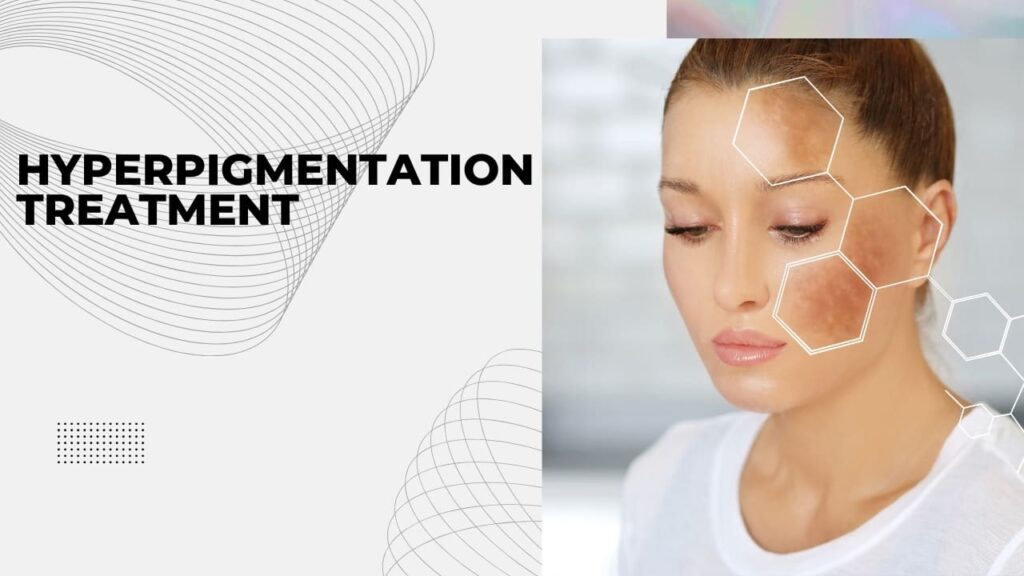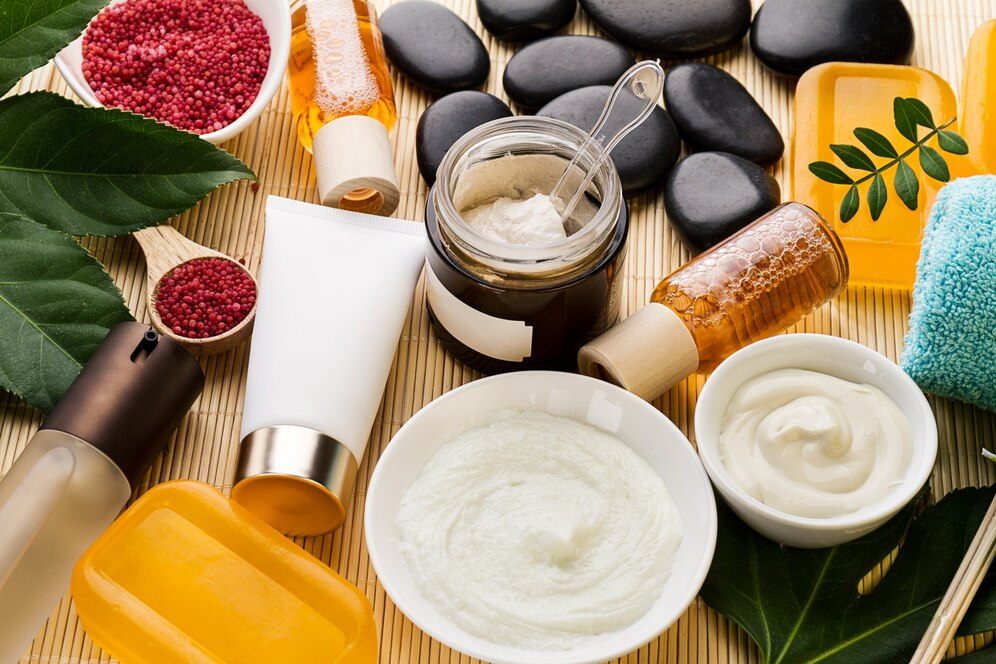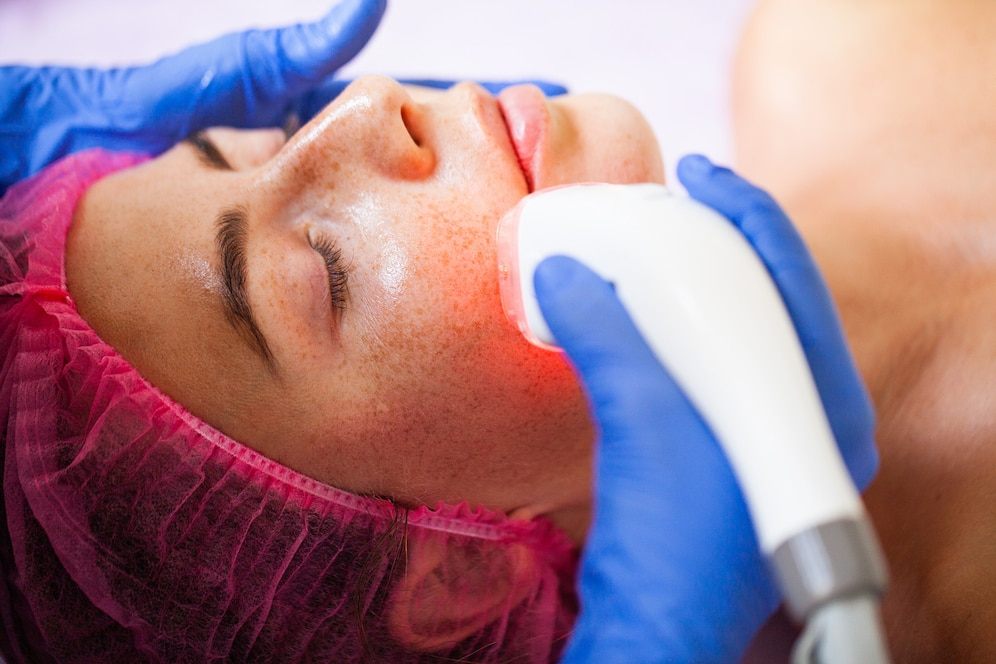Last updated on July 15th, 2025 at 04:51 pm
 Hyperpigmentation, often referred to as the bane of flawless skin, is a common dermatological concern that affects individuals of all ages and skin types. Characterized by dark patches or spots on the skin, hyperpigmentation can arise due to various factors, including sun exposure, hormonal changes, inflammation, and skin injuries. Fortunately, advancements in dermatology have led to a plethora of treatment options aimed at effectively addressing hyperpigmentation and restoring skin clarity and radiance.
Hyperpigmentation, often referred to as the bane of flawless skin, is a common dermatological concern that affects individuals of all ages and skin types. Characterized by dark patches or spots on the skin, hyperpigmentation can arise due to various factors, including sun exposure, hormonal changes, inflammation, and skin injuries. Fortunately, advancements in dermatology have led to a plethora of treatment options aimed at effectively addressing hyperpigmentation and restoring skin clarity and radiance.
Melanocytes, residing within the skin, diligently produce melanin, the intricate pigment dictating the vast spectrum of skin hues. When these cells become overactive or are stimulated excessively, they produce more melanin, leading to hyperpigmentation. This excessive melanin production can manifest in various forms, such as sunspots, melasma, and post-inflammatory hyperpigmentation.
Hyperpigmentation Treatment
The best treatment of hyperpigmentation are mentioned below:
1. Topical Treatments
Hydroquinone: A widely used topical agent that inhibits melanin production, effectively lightening dark spots over time.
Tyromax Cream is one such cream that contains Hydroquinone.
Retinoids: Derived from vitamin A, retinoids promote skin cell turnover, aiding in the fading of hyperpigmented areas.
Vitamin C: A potent antioxidant that not only brightens the skin but also helps to inhibit melanin production.
Kojic Acid: Derived from fungi, kojic acid is known for its skin-lightening properties and is often used in hyperpigmentation treatments.
Alpha Hydroxy Acids (AHAs) and Beta Hydroxy Acids (BHAs): These chemical exfoliants help to remove dead skin cells and promote cell turnover, revealing brighter, more even-toned skin.

2. Laser Therapy
Intense Pulsed Light (IPL): Utilizes broad-spectrum light to target and break down melanin deposits in the skin, effectively reducing hyperpigmentation.
Fractional Laser Therapy: Targets specific areas of hyperpigmentation with intense laser energy, promoting collagen production and skin renewal.
Q-Switched Nd:YAG Laser: Specifically targets melanin in the skin without causing damage to surrounding tissues, resulting in clearer, more even-toned skin.

3. Chemical Peels
Glycolic Acid Peel: A superficial peel that exfoliates the outer layer of the skin, revealing fresher, more evenly pigmented skin beneath.
TCA (Trichloroacetic Acid) Peel: Penetrates deeper into the skin, effectively targeting moderate to severe hyperpigmentation and improving skin texture.
4. Microdermabrasion
A non-invasive procedure that uses a diamond-tipped wand or fine crystals to gently exfoliate the skin, diminishing the appearance of hyperpigmentation and promoting cell turnover.
5. Combination Therapies
Dermatologists often recommend combining different treatment modalities for optimal results. For example, a combination of topical agents, laser therapy, and chemical peels may be prescribed based on the individual’s skin type and the severity of hyperpigmentation.
Hyperpigmentation Treatment at Home
Hyperpigmentation, while a common skin concern, can often be treated effectively at home with various natural remedies and over-the-counter products. Here are some popular options:
Sunscreen: Protecting your skin from harmful UV rays is crucial in preventing further darkening of hyperpigmented areas. Choose a broad-spectrum sunscreen with a high SPF and apply it daily, even on cloudy days.
Natural Remedies:
- Lemon Juice: The natural acidity of lemon juice can help to lighten dark spots. Dilute lemon juice with water and apply it to hyperpigmented areas, but be cautious as it can cause skin irritation in some individuals.
- Aloe Vera: Known for its soothing properties, aloe vera gel can help to reduce inflammation and promote skin healing, which may aid in fading hyperpigmentation.
- Green Tea Extract: Rich in antioxidants, green tea extract can help to protect the skin from damage and reduce the appearance of dark spots.
Skin Brightening Masks:
- DIY masks using ingredients such as turmeric, honey, yogurt, and oatmeal can help to brighten the skin and reduce hyperpigmentation when used regularly.
- While these home remedies can be effective for mild cases of hyperpigmentation, it’s important to note that results may vary, and it may take time to see significant improvement.
Additionally, it’s crucial to practice good skincare habits, including cleansing, moisturizing, and protecting your skin from sun damage, to support the effectiveness of at-home treatments.
> Consult a Doctor and Medkart will help you Order Medicines Online
Conclusion:
Hyperpigmentation can be a stubborn skin concern, but with the array of treatment options available today, achieving a more even-toned complexion is certainly within reach. From topical agents and laser therapies to chemical peels and microdermabrasion, there’s a treatment approach suited to every skin type and concern.
However, it’s important to consult with a qualified dermatologist to determine the most appropriate treatment plan tailored to your specific needs and to ensure safe and effective results. With patience, consistency, and professional guidance, you can bid farewell to hyperpigmentation and unveil brighter, more radiant skin.
Read: What are Generic Medicines?
FAQs on Hyperpigmentation Treatment
Q1. What is hyperpigmentation treatment?
Hyperpigmentation treatment encompasses various methods aimed at reducing or eliminating dark patches or spots on the skin caused by excess melanin production. This can include topical agents, such as hydroquinone and retinoids, professional procedures like laser therapy and chemical peels, as well as at-home remedies like sunscreen and exfoliation to promote skin clarity and even tone.
Q2. Is it possible to treat hyperpigmentation at home?
Yes, mild cases of hyperpigmentation can be treated at home using topical agents like vitamin C and niacinamide, along with regular exfoliation and sunscreen application for sun protection.
Q3. What are the professional treatment options for hyperpigmentation?
Professional treatment options for hyperpigmentation include laser therapy, chemical peels, and microdermabrasion, which are performed by dermatologists or licensed skincare professionals to target and reduce the appearance of dark spots effectively.